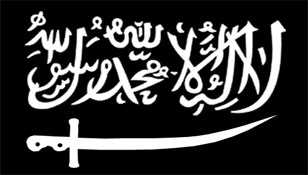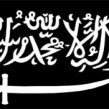
Suicide Attacker Battalion Resurfaces
Publication: Eurasia Daily Monitor Volume: 6 Issue: 127
By:

On June 22, at 8.30 am, a suicide attacker crashed his explosives-filled Toyota into the vehicle carrying the president of Ingushetia, Yunus-Bek Yevkurov, as the presidential motorcade was passing by in the city of Nazran. So far, the investigators failed to establish the driver’s identity. This brazen attack, along with other high-profile insurgent assaults targeting Russian federal government officials in the region (such as the assassinations of Dagestan’s Interior Minister Adilgerei Magomedtagirov on June 5, of the deputy chairwoman of Ingushetia’s Supreme Court Aza Gazgereyeva on June 10, and of former Interior Minister and Deputy Prime Minister of Ingushetia Bashir Aushev on June 13), clearly point to a significant escalation of the activities of the region’s jamaats.
It is still not completely clear who was behind the attempt on President Yevkurov’s life. Initially, websites such as radikal.ru representing various jamaats announced that the attack was carried out by a "special fast response mujahideen unit;" however, neither the identity of the group nor its leader was specified
That, however, was not the end of the story. On June 27, responsibility for the attack was claimed by Riyadus Salikhin ("Gardens of Believers" in Arabic), the infamous shaheed (martyr or suicide fighter) battalion established under the personal tutelage of Shamil Basaev to carry out similar actions in the North Caucasus and elsewhere. The group’s name first surfaced in the text of Basaev’s statement after the siege of the Dubrovka theater in Moscow in October 2002. Later, in one of the most notorious acts claimed by the group, the battalion took a group of children and parents hostage in the North Ossetian town of Beslan on September 1, 2004, during a school siege that left hundreds of children dead. Although Riyadus Salikhin seemed to have faded into the unknown after Shamil Basaev’s death in the summer of 2006 (www.kommersant.ru, September 2; www.regnum.ru, July 10, 2006), its resurrection under the command of Emir Habibullah is likely to become a top priority for Russia’s special services in the region.
The group’s name also came up during the crash of Neva Express train that was derailed overnight on August 13, 2007. The most recent actions attributed to the unit included the bombing of a passenger mini-bus in the Ossetian capital of Vladikavkaz on November 6, 2008 (www.regnum.ru, November 6, 2008).
In a rambling statement, the leaders of the suicide fighter group explained that the assassination attempt against Yevkurov was meant to punish him for his "anti-Muslim actions." The president was also blamed for receiving the Hero of Russia award during the Chechen war in 2000-01, for insulting mujahideen and for calling on the local Sufis to rise against the mujahideen. The statement also accused Yevkurov of giving orders to kill religious figures in Ingushetia and later blaming the murders on the mujahideen in order to incite public hatred of the insurgency (www.kavkazcenter.com, June 27).
Thus, two groups have already claimed responsibility for the attack on President Yevkurov, but the true identity of the attack’s mastermind will most likely remain unknown until the insurgents involved release interviews with some details of the operation. Still, it is quite doubtful that an attack like this could have been staged by outsiders; the more likely culprits are those who have been using Ingushetia for years as a battleground for raids targeting the military, pro-Moscow government and religious leaders critical of Salafi ideology – that is, the fighters of Ingushetia’s Sharia Jamaat led by the former associate of Shamil Basaev, Emir Magas (aka Akhmed Yevloev).
Some analysts (such as Yulia Latynina) have theorized that Yunus-Bek Yevkurov was trying to negotiate with the rebels behind the scenes (www.dv.kp.ru, June 22). If these claims are true, it is hard to see what the president hoped to accomplish by this risky maneuver. Emir Magas certainly is not among those who took up arms simply as a means of taking revenge, and his current beliefs were formed while fighting side-by-side with Shamil Basaev. He has been a fighter for over a decade (not counting the first Chechen campaign – a period of his life that is barely known), and in his worldview, Islam has priority over nationalist ideas. Someone like Magas would not accept the idea of negotiating with Moscow about anything other than the withdrawal of the Russian troops from the region. He, and "war veterans" like him, find the mere fact of Moscow’s influence over the region unacceptable. What could possibly have been the subject of his discussions with Yevkurov? And what could the president possibly have to offer Magas? A life sentence? Perhaps some assistance in leaving the country and going overseas? Both of these theories seem less than probable.
The armed resistance and jamaats make no distinction between Murat Zyazikov and Yunus-Bek Yevkurov as presidents of Ingushetia. In their eyes, any president is nothing more than a puppet of the federal authorities in Moscow. Therefore, it would be naive to believe that the insurgency’s policy toward the government would have changed after the new president took office. The rebels’ strategy remains the same: to keep killing those who they think stand in the way of the insurgency’s goal of establishing governmental rule completely separate from the Russian state.
Even if Ruslan Aushev became Ingushetia’s president again (a completely improbable scenario as long as Vladimir Putin remains in power), he would still have to deal with the same problems that are haunting the current Ingush leadership.
The Russian government’s reaction to the attempt on Yevkurov’s life, as expressed by President Dmitry Medvedev, was predictably harsh. He demanded that order be restored in Ingushetia and pointed to Chechnya as an example, which was followed by a personal request to Ramzan Kadyrov to boost his anti-rebel efforts in Ingushetia as well (www.actualcomment.ru, June 22). The latter caused an equally predictable wave of protests from the Ingush intelligentsia – a group that is very sensitive to any hints at a potential merger between Ingushetia and Chechnya (dozens of enraged messages from dismayed members of Ingushetia’s public have been posted on ingushetia.org). The reaction by the Ingush community had the effect of a cold shower on the ambitions of Ramzan Kadyrov, who had interpreted Dmitry Medvedev’s address as a green light to expand his power in the region.
It therefore comes as no surprise that upon returning from his visit to Africa, Medvedev asked his top brass for a status report on the investigation into the assassination attempt on President Yevkurov (www.grani.ru, June 27). The report, however, is unlikely to make the Russian president happy since local government agencies have failed to accomplish anything of note since the attack. Even Ramzan Kadyrov could not give Medvedev anything more than promises to eliminate the insurgency’s leaders within one month (Interfax, June 28).




